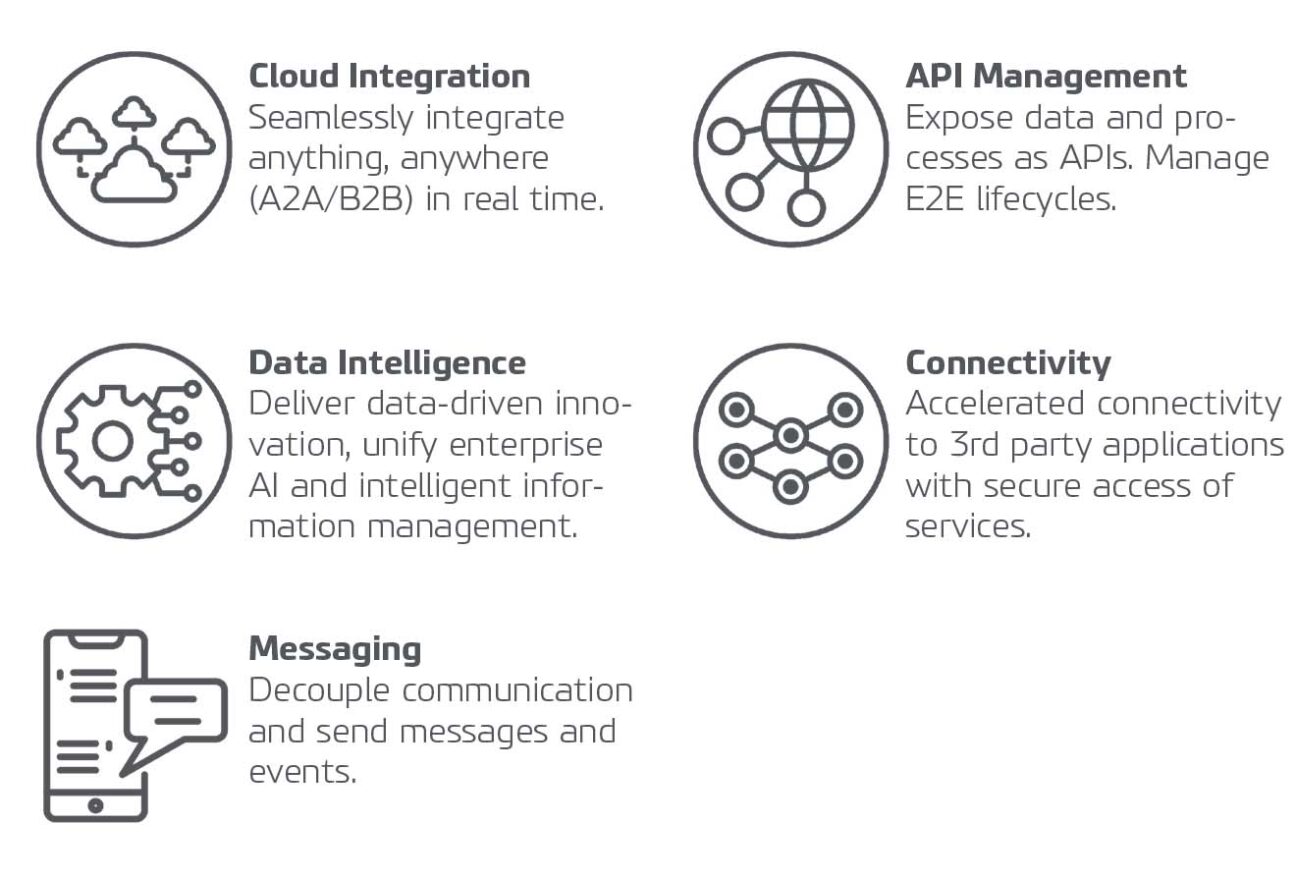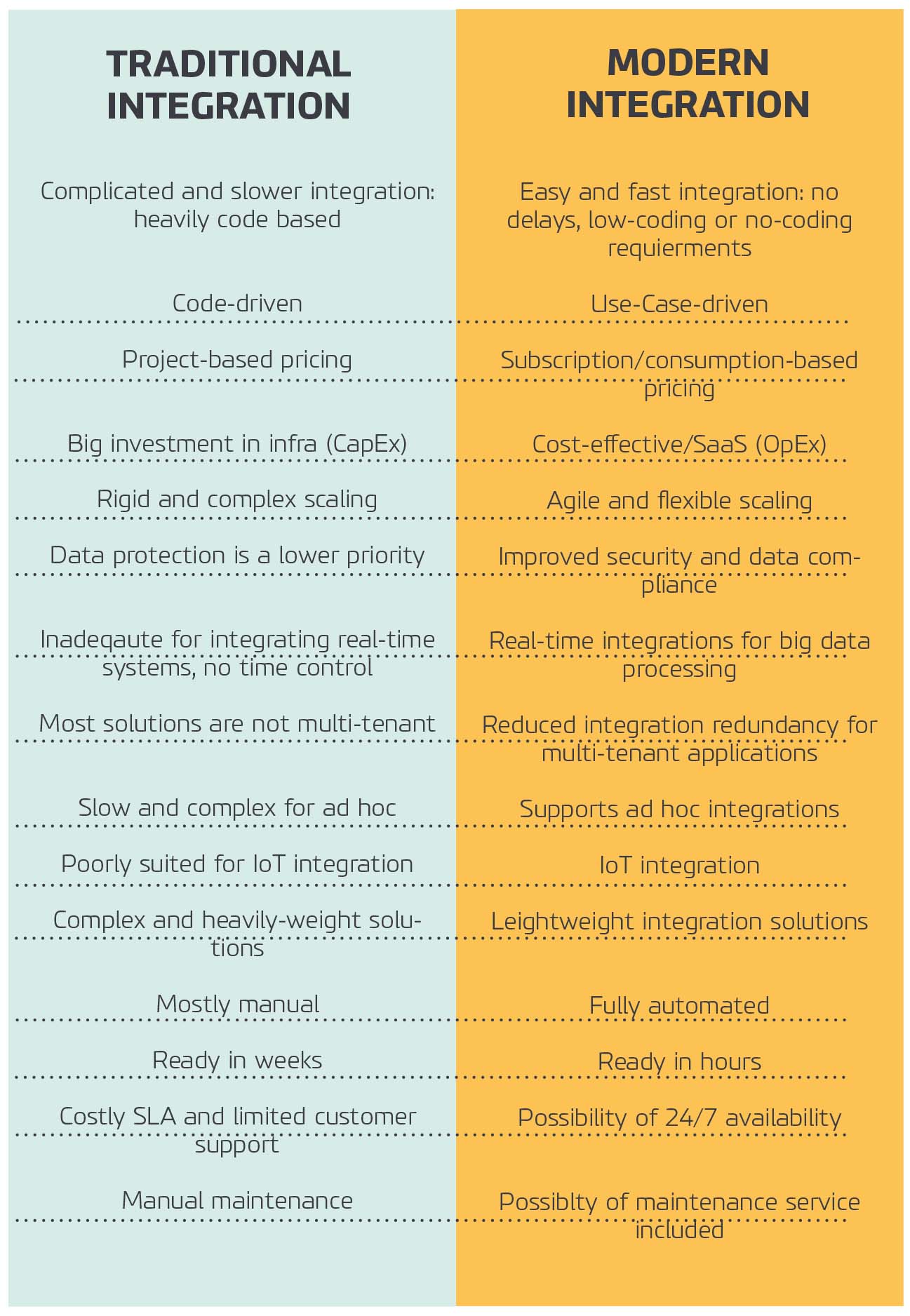Digitalization can only be achieved by modern integration
Considering the complexity of a modern enterprise’s IT landscape, every organization is looking for the most efficient ways to connect disparate systems, increase productivity and efficiency, unlock the value of data, optimize the use of current IT capabilities, and keep the organization secure. All while retaining business continuity.
Traditional integration platforms do not satisfy the requirements of the modern world. Digital transformation brought more options to the integration market than before. Traditional integration methods aren’t agile or scalable enough to keep up with the market’s ever-changing demands. Today, organizations need a faster, easier, and more cost-effective way to integrate all their applications and data sources, wherever they reside, while making use of cutting-edge technologies and innovations. Modern integration platforms, such as Mulesoft, are able to fulfill many of the drivers for today’s business and boost positive customer experience.
Enterprises no longer exist solely within one location, today’s businesses are global and need to share data across on-premises locations, the cloud, and devices. As businesses innovate and deploy new cloud-based technology, more data is needed from these legacy systems. integrating cloud and legacy systems in a point-to-point fashion does not scale new business demands. Hybrid enterprises need hybrid cloud integration.
Modern integration platforms like Mulesoft provide organizations with all of the tools they need to make it simpler and easier to integrate data and applications across any on-premises and multi-cloud environment. Besides this, it offers an extensive set of capabilities to leverage existing IT, embrace new technology and ways of working, increase efficiency, improve security, and support a broad range of integration scenarios.
With data silos broken down, businesses have an incredible opportunity to turn their data into actionable insights, allowing them to make better decisions faster. By 2022, Gartner predicts at least 65% of large organizations will have implemented a hybrid integration platform to power their digital transformation.
Embrace a modern integration platform and speed up your digital transformation with:

“Through 2021, digital will take large traditional enterprises on average twice as long and cost twice as much as anticipated.”

